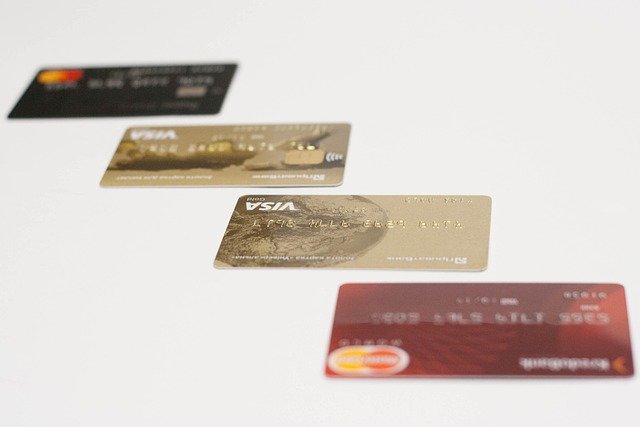2025 Guide: credit card options without fixed income or proof of income
Obtaining a credit card without traditional income documentation is challenging but not impossible in 2025. Many lenders now offer flexible approval processes that consider alternative income sources, assets, and creditworthiness beyond standard employment verification. Whether you're self-employed, rely on investment income, or have non-traditional earnings, understanding the right approach can help you secure credit while building your financial foundation responsibly.

Key Considerations for Obtaining Credit Cards Without Proven Income
Credit card issuers typically require income verification to assess your ability to repay debt. However, several factors can strengthen your application when traditional income proof isn’t available. Your credit score remains the most crucial element, as a strong payment history demonstrates financial responsibility regardless of income documentation. Existing banking relationships, assets, and co-signers can also significantly improve approval odds.
Consider starting with secured credit cards, which require a cash deposit that serves as your credit limit. These cards often have more lenient income requirements and provide an excellent pathway to building credit history. Student credit cards represent another option for those enrolled in educational programs, as they’re designed for applicants with limited income and credit history.
Alternative Documentation Commonly Accepted During Credit Card Applications
When traditional pay stubs aren’t available, credit card companies may accept various alternative documents. Bank statements showing consistent deposits can demonstrate regular income flow, even from unconventional sources. Tax returns, particularly for self-employed individuals, provide comprehensive income pictures that many issuers find acceptable.
Investment account statements, rental property documentation, and retirement account distributions can verify income sources. Some lenders accept household income if you’re married or have access to shared financial resources. Freelancers and gig workers can submit 1099 forms, client contracts, or payment platform records from services like PayPal or Venmo to demonstrate earning patterns.
Understanding Credit Card Features When Lacking Standard Income Records
Credit cards designed for non-traditional income applicants often come with specific features and limitations. Annual fees may be higher, and credit limits typically start lower than traditional cards. However, many offer graduation paths where limits increase and fees decrease as you demonstrate responsible usage.
Look for cards with flexible spending categories that align with your lifestyle and potential earning patterns. Some cards offer cash back on rotating categories or flat-rate rewards that provide value regardless of your employment status. Consider cards with financial monitoring tools and credit score tracking to help maintain and improve your creditworthiness over time.
Risks and Responsible Practices for Applying Without Fixed Income
Applying for credit cards without steady income carries inherent risks that require careful consideration. Variable income can make budgeting and payment planning challenging, potentially leading to missed payments and damaged credit scores. Only apply for credit you can realistically manage based on your lowest expected monthly income rather than peak earning periods.
Avoid applying for multiple cards simultaneously, as this creates numerous hard inquiries that can lower your credit score. Be honest on applications about your income situation - misrepresenting your financial status constitutes fraud and can result in account closure and legal consequences. Start with one card, demonstrate responsible usage for at least six months, then consider additional credit products if needed.
Expert Insights on Navigating Approval With Unconventional Income
Financial experts recommend focusing on credit unions and community banks, which often have more flexible underwriting criteria than major national issuers. These institutions frequently consider the whole financial picture rather than relying solely on income verification algorithms. Building relationships with local financial institutions can provide advantages when applying for credit products.
Consider becoming an authorized user on a family member’s account to build credit history while working toward independent credit approval. Some experts suggest waiting until you have at least three to six months of consistent alternative income documentation before applying, as this demonstrates earning stability to potential lenders.
Real-World Credit Card Options and Costs for Non-Traditional Income Applicants
Several credit card providers specifically cater to applicants with non-traditional income situations, each offering different features and cost structures. Understanding these options helps you make informed decisions based on your specific financial circumstances.
| Card Type | Provider | Annual Fee | Credit Requirements | Special Features |
|---|---|---|---|---|
| Secured Card | Capital One Secured | $0 | Poor/No Credit | Graduates to unsecured |
| Student Card | Discover it Student | $0 | Limited/No Credit | 5% rotating categories |
| Alternative Income | Credit One Bank | $0-$99 | Fair Credit | Accepts household income |
| Business Card | Chase Ink Business | $0-$95 | Good Credit | For self-employed |
Prices, rates, or cost estimates mentioned in this article are based on the latest available information but may change over time. Independent research is advised before making financial decisions.
Interest rates for these cards typically range from 18% to 29% APR, with secured cards often offering lower rates than unsecured options. While annual fees vary, many starter cards waive fees entirely to attract new customers. Cash advance fees generally range from 3% to 5% of the transaction amount, with foreign transaction fees between 2% and 3% for cards without international fee waivers.
Building Long-Term Credit Success
Successfully obtaining and managing credit cards without traditional income verification requires patience and strategic planning. Focus on making payments on time, keeping balances low relative to credit limits, and gradually building a positive credit history. Many cardholders see significant credit score improvements within 6 to 12 months of responsible card usage.
Monitor your credit regularly and consider setting up automatic payments to avoid missed due dates. As your credit profile strengthens and income stabilizes, you’ll likely qualify for better credit products with lower fees, higher limits, and more attractive rewards programs. The key lies in starting conservatively and building a foundation for future financial opportunities while maintaining responsible spending habits throughout the process.




